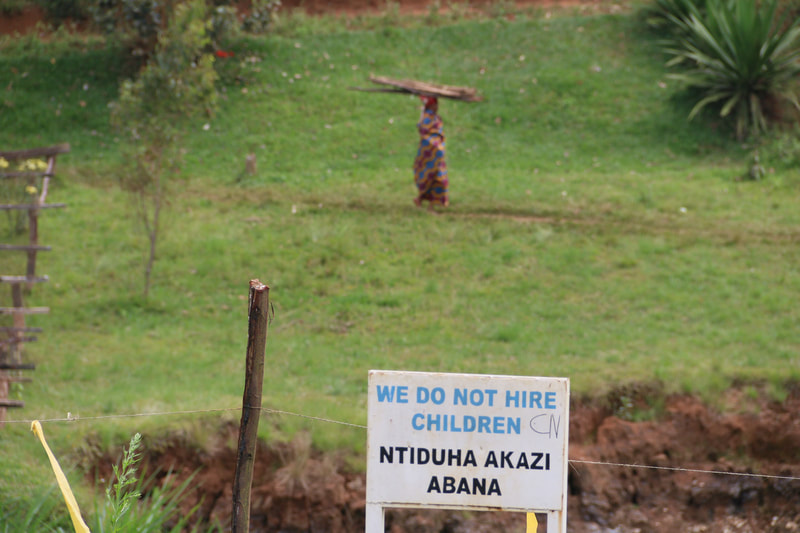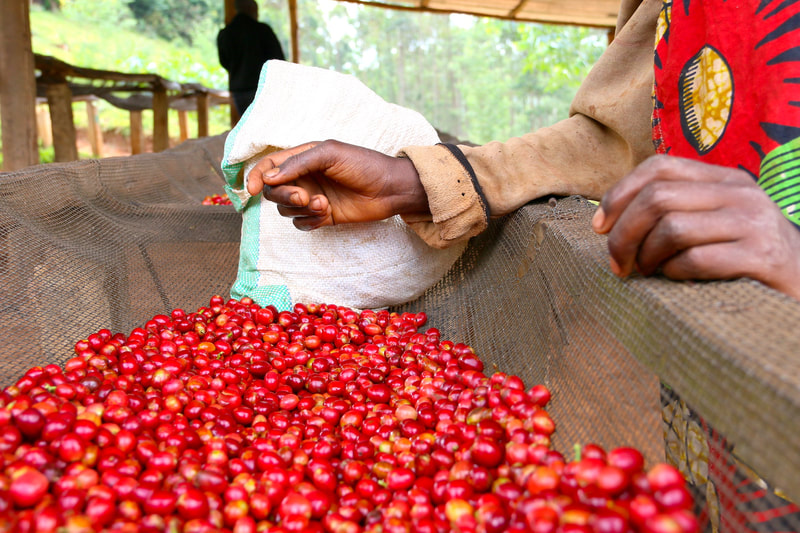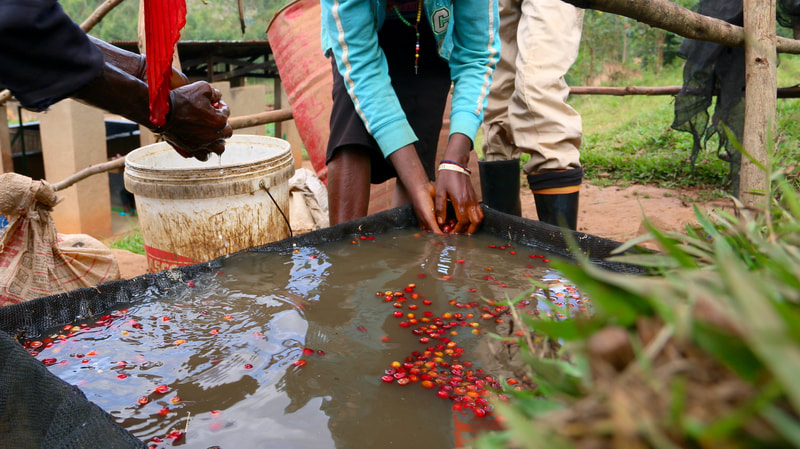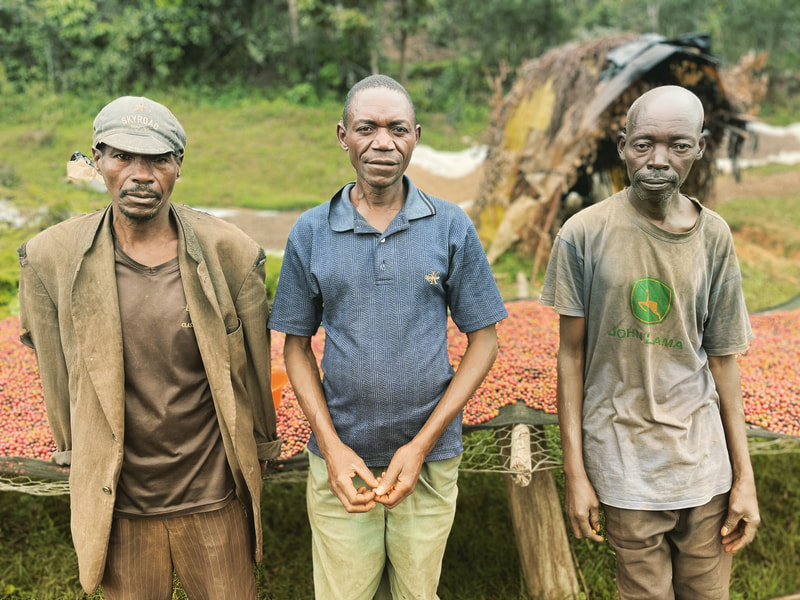RWANDA MACUBA
General Information
|
Origin: Rwanda
Region: Western Province District: Nyamasheke Washing Station: Macuba Farmers: 465 active members (186 female, 279 male) Cultivar: 100% Bourbon Types Altitude: 1685 masl Process: Fully Washed Harvest: March - June 2022 Cherry Price | FOB Price: 4.24 USD/kg | 6.52 USD/Kg Screen | Moisture | Density: 15+ | 10.5% | 0.71 g/ml Packaging: 60 Kg + GrainPro Score: 85.7 Notes: Apricot, Caramel, Brown Sugar, Orange |
|
HAND SORTING THE POTATO DEFECT
MACUBA cws LOCATION
|
WHERE WE ARE
Barcelona, Spain Santiago, Chile Budapest, Hungary |





